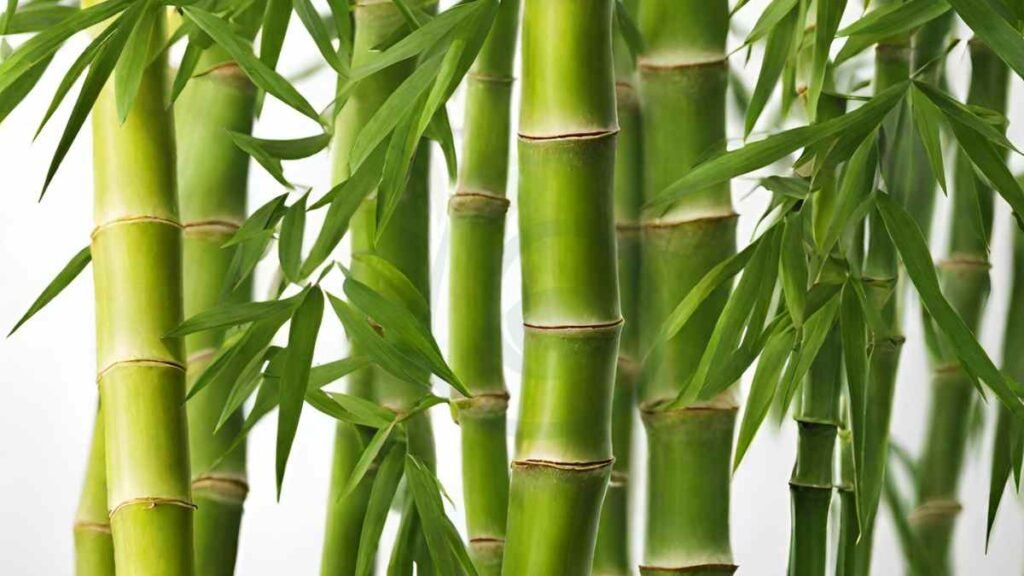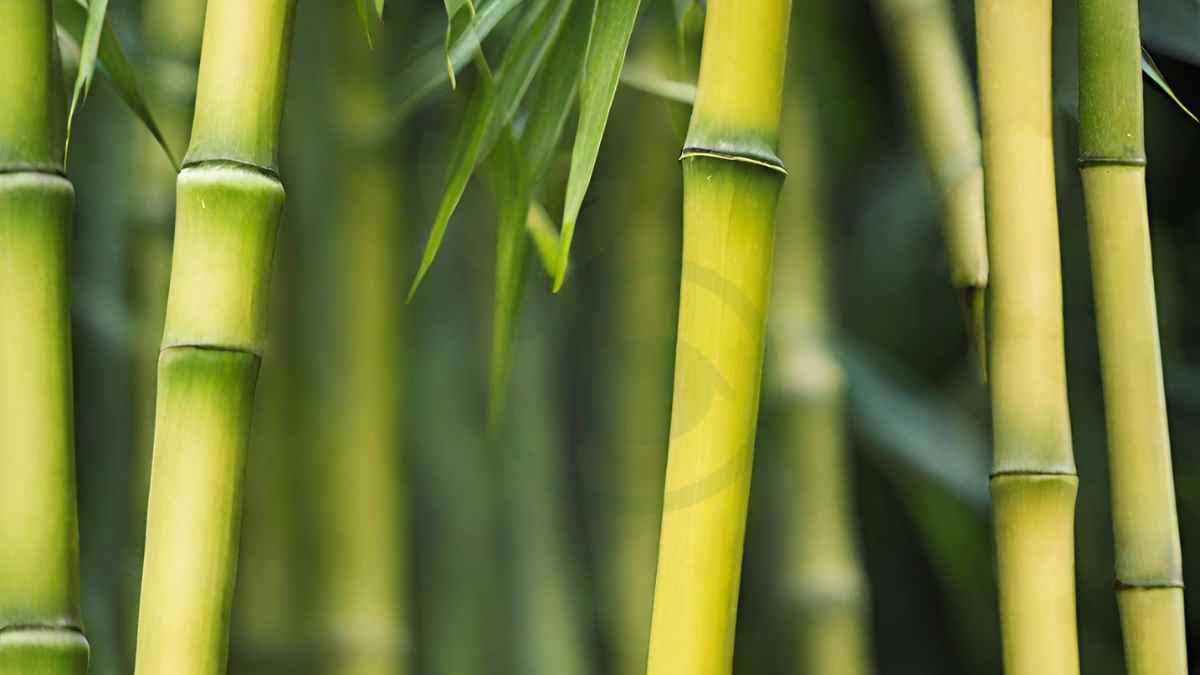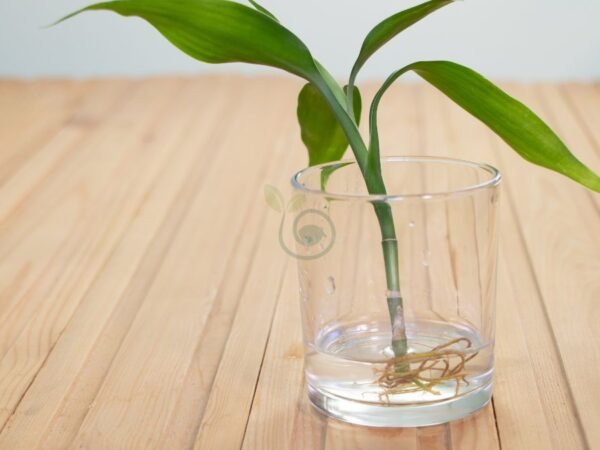Have you ever wondered how to save your beloved bamboo plant when it starts turning yellow? Worry not, as we have the perfect solution for you. With just a few easy steps, fresh water and indirect sunlight, you can bring your bamboo back to its vibrant green glory in no time.
Key Takeaways
- Identifying Causes: Understand the reasons behind your bamboo plant turning yellow to address the issue effectively.
- Water Quality Solutions: Ensure proper watering practices by using distilled or filtered water to prevent yellowing.
- Soil and Repotting: Regularly check and maintain the soil quality, repot if necessary, to promote a healthy bamboo plant.
- Light and Location: Place your bamboo plant in a spot with adequate light and adjust its location if needed to avoid yellowing.
- Humidity and Misting: Maintain proper humidity levels and mist the plant occasionally to keep it healthy and vibrant.
- Preventive Measures: Implement preventive measures such as proper care, regular maintenance, and monitoring to keep your bamboo plant green and thriving.
Identifying Causes
Tap Water Use
Avoid using tap water with high chemical content to prevent yellowing of lucky bamboo. Consider using filtered or distilled water for maintaining plant health. Test tap water for chemicals like chlorine and fluoride before watering.
Incorrect Water Temperature
Ensure the water temperature is suitable for lucky bamboo to prevent yellowing. Use room temperature water, not cold, to keep your plant healthy. Consistently monitor water temperature to avoid stressing the plant.
Infrequent Water Changes
Regularly change the water to provide essential nutrients and oxygen to lucky bamboo. Set a schedule for water changes to maintain plant health and prevent yellowing. Avoid stagnant water by changing it frequently.
Dry Soil Issues
Maintain proper soil moisture by adding rocks on top and watering when the soil feels dry. Check soil moisture regularly to prevent the bamboo plant from turning yellow. Ensure soil is consistently moist but not waterlogged.
Direct Sunlight Damage
Protect your lucky bamboo from direct sunlight to prevent leaf yellowing. Place the plant in an area with bright indirect light for optimal growth. Shield the bamboo plant from harsh sunlight exposure.
Water Quality Solutions
Changing Water
When it comes to Changing Water, follow a consistent watering schedule to prevent yellowing of lucky bamboo. Monitor the plant's water needs regularly to maintain its health. Adjust the frequency of watering based on the plant's condition and environment.
Frequency Tips
- Create a watering routine to keep the lucky bamboo healthy.
- Check the soil moisture level before each watering session.
- Ensure proper drainage to avoid waterlogging, which can lead to root rot.
Temperature Advice
- Maintain a temperature range between 65°F to 90°F for optimal growth.
- Use a thermometer near the plant to monitor temperature fluctuations.
- Avoid placing the bamboo near drafts or heating vents that can impact its temperature stability.
Soil and Repotting
Choosing Suitable Soil
Select well-draining soil to prevent waterlogging, a common cause of yellowing in bamboo plants. Opt for a soil mix specially formulated for lucky bamboo to ensure proper growth. This type of soil provides essential nutrients and aeration crucial for the plant's root health.
Repotting Steps
Follow correct repotting procedures to help revive yellowing lucky bamboo plants. When repotting, choose a new pot with adequate drainage to avoid issues related to overwatering. Carefully remove the plant from its current container and transplant it into fresh soil to aid in its recovery.
Light and Location
Avoiding Direct Sunlight
Placing the bamboo plant in direct sunlight can cause yellowing, so opt for bright indirect light. Shielding the plant from intense sunlight is crucial to maintain its green color.
Ideal Placement
For a healthy lucky bamboo, choose a location with bright indirect light and consistent temperature. Prevent yellowing by avoiding drafts and temperature fluctuations.
Humidity and Misting

Increasing Humidity
To increase humidity around your bamboo plant, consider placing it in a bathroom or kitchen. These areas naturally have higher moisture levels. You can group plants together to create a microclimate with increased humidity.
Another way to boost humidity is by using a pebble tray. Fill a tray with water and place pebbles on top, ensuring the plant's pot does not touch the water directly. As the water evaporates, it raises the humidity around the plant.
Misting Techniques
- Mist the bamboo leaves regularly to maintain adequate moisture levels. This helps prevent yellowing caused by dry air.
- Ensure you mist every two to three days, especially during dry seasons or in centrally heated rooms.
- However, be cautious not to over-mist the plant. Too much water can lead to soggy soil and root rot.
Trimming and Maintenance
Removing Yellow Leaves
Trim yellow leaves with clean scissors for a neater appearance and better plant health. Promptly eliminate any damaged or yellowing leaves to stimulate new growth. Consistently prune the plant to upkeep its health and vitality.
Regular Trimming
Regularly trim the lucky bamboo plant to get rid of any yellowing or damaged sections. Pruning helps in fostering healthy growth and preventing further yellowing issues. Stick to a consistent trimming routine to ensure the plant stays vibrant.
Harvesting and Rooting
Harvesting Techniques
Harvest and root leaves of dying bamboo plants to encourage new growth. Cut green sprouts to promote root growth for revival. Utilize these techniques to salvage healthy parts of the plant.
Rooting Process
Encourage root growth by harvesting and rooting leaves of the bamboo plant. Provide water and nutrients for successful rooting. Monitor root development closely to ensure propagation.
Dealing with Dead Stalks
Identifying Dead Stalks
Inspect the bamboo plant for yellowing stalks with a different color and texture than healthy ones. Look for signs of decay, such as mushiness or foul odor, to differentiate dead stalks from live ones. Promptly remove any dead stalks to prevent the spread of disease and protect the plant's overall health.
Removal Process
Utilize clean tools like sharp scissors or pruning shears to carefully trim away dead or yellowing sections of the bamboo plant. Make sure to cut at an angle and create a clean edge to facilitate healing and new growth. After cutting, seal the exposed ends with candle wax to prevent infections and promote faster recovery.
Preventive Measures
Proper Care Routine
Establish a care routine by watering the bamboo plant regularly, ensuring the soil remains moist but not waterlogged. Place the plant in indirect sunlight to prevent scorching and maintain its vibrant green color. Trim any yellow leaves or stems to promote new growth.
Maintain a consistent care schedule by checking the plant's moisture levels every few days. Ensure that the lucky bamboo is placed in a container with proper drainage to prevent waterlogging. Regularly dust the leaves to keep them clean and free from pests that can cause yellowing.
Monitoring Temperature
Monitor the temperature around your lucky bamboo plant using a thermometer to ensure it stays within the ideal range of 65-90 degrees Fahrenheit. Avoid placing the plant near drafty windows or heating vents that can lead to temperature fluctuations and stress for the plant.
Prevent yellowing by keeping the bamboo away from cold drafts during winter months and direct sunlight during hot summer days. If you notice any signs of stress such as wilting or browning of leaves, relocate the plant to a more suitable location with stable temperatures.
Adjusting Humidity Levels
Increase humidity levels around your lucky bamboo by misting its leaves regularly with room temperature water. This helps prevent yellowing caused by dry air conditions, especially during winter when indoor air tends to be drier. Use a humidity gauge to monitor levels and adjust as needed.
Prevent yellow leaves by maintaining humidity levels between 40-60% for optimal growth. You can also place a small tray filled with water near the plant or use a humidifier in the room where the bamboo is located. Avoid placing the plant near air-conditioning units or heaters that can dry out the air excessively.
Final Remarks
After delving into the various aspects of caring for your yellowing bamboo plant, you now possess a comprehensive understanding of the potential causes and effective solutions to revive its health. By ensuring proper watering, repotting when necessary, optimizing light exposure, maintaining adequate humidity levels, regular trimming, and implementing preventive measures, you can significantly enhance the well-being of your bamboo plant. Remember to stay vigilant in monitoring its condition and promptly address any issues that may arise to promote a thriving and vibrant plant environment.
Take action today by applying the insights gained from this guide to rescue your yellowing bamboo plant and foster its growth and vitality. Your dedication to its care will not only rejuvenate its appearance but also create a flourishing green oasis in your living space. Keep nurturing your plant with love and attention to enjoy its beauty for years to come.
Frequently Asked Questions
How can I identify the causes of my yellowing bamboo plant?
To identify the causes of a yellowing bamboo plant, check for overwatering, inadequate light, poor soil drainage, or pests. Ensure proper care by addressing these factors promptly to revive your plant.
What are some water quality solutions to save a yellowing bamboo plant?
Use filtered or distilled water to prevent mineral buildup. Allow water to sit overnight before using it to water your bamboo. Avoid overwatering and ensure proper drainage to maintain healthy roots.
When should I repot my yellowing bamboo plant and how should I do it?
Repot your bamboo if you notice root-bound conditions or poor soil quality. Choose a slightly larger pot with good drainage holes and use well-draining soil. Gently remove the plant from its current pot and replant it in the new one.
How can I adjust light and location to help my yellowing bamboo plant thrive?
Ensure your bamboo receives bright, indirect sunlight for several hours daily. Avoid direct sunlight that may scorch the leaves. Rotate the plant occasionally to promote even growth and prevent yellowing.
What is the importance of humidity and misting for a yellowing bamboo plant?
Maintain moderate humidity levels around your bamboo plant by misting it regularly with room temperature water. This helps prevent dryness that can lead to leaf browning or yellowing. Use a humidity tray or room humidifier if needed.
Is trimming and maintenance essential for saving a yellowing bamboo plant?
Regularly trim any yellow or dead leaves from your bamboo plant to encourage new growth. Remove any damaged or diseased stalks carefully to prevent further stress on the plant. Maintain cleanliness around the plant for optimal health.
How do I deal with dead stalks on my yellowing bamboo plant?
Trim dead stalks close to the base using clean pruning shears to avoid damaging healthy parts of the plant. Inspect the remaining stalks for signs of disease or rot and take necessary steps to prevent spread.
[Special requests] Remember that consistent care and attention are key factors in reviving a yellowing bamboo plant. Monitor changes in its appearance closely and adjust care routines accordingly for best results.
Image Source: Paid image from CANVA



